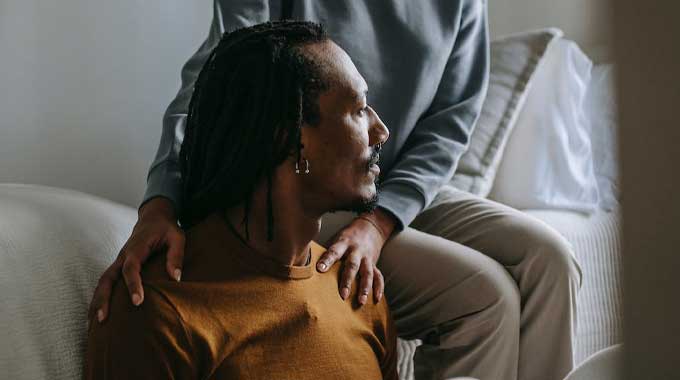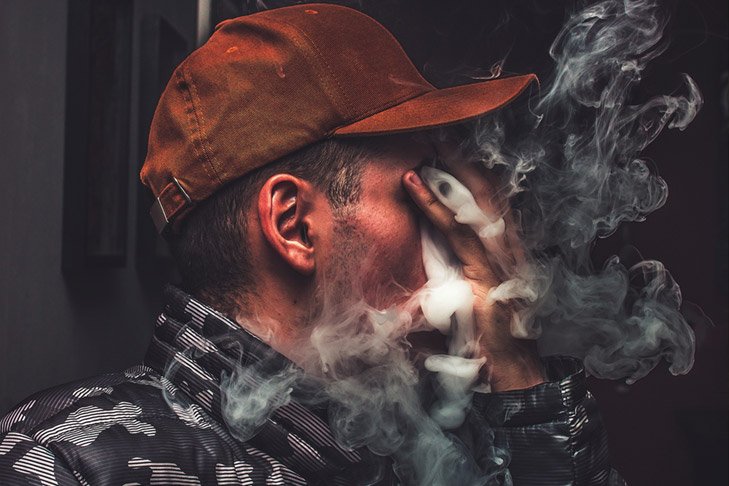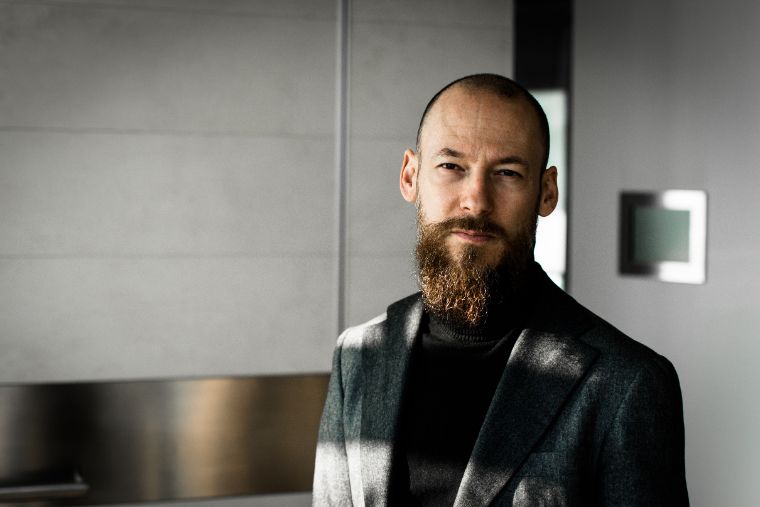Cannabis has many different names, like marijuana, weed, ganja, or mary-jane, and comes in many different forms, such as the plant or made into “edibles” or “wax.” In its natural form, cannabis is a plant that contains the chemical tetrahydrocannabinol (THC) which when ingested induces a feeling of euphoria or relaxation. It’s a common misnomer that marijuana is not addictive. However, like virtually anything that people can derive pleasure from, marijuana can become addictive. In fact, as cannabis potency has increased so has marijuana addiction.
Cornerstone provides high-quality care for those suffering from cannabis dependence and addiction along with co-existing conditions. If you or a loved one are struggling with cannabis addiction we can help provide support and treat it to achieve sustainable recovery.
Cornerstone designs each marijuana addiction treatment program directly with patients. We bring our decades of experience in the Orange County community treating addictions and patients bring their willingness to address their addiction. Together we formulate a plan that sets people suffering from marijuana abuse disorder up for a sustained, sober recovery.
What are the Effects of Cannabis Consumption?
Using cannabis alters the central nervous system, eliciting feelings of tranquility, relaxation, a transformed awareness of surroundings, and in some cases increased appetite known as ‘the munchies’ or uncontrollable laughter. It is often used as a social drug, shared amongst a group of people, or as a way to eliminate everyday stresses from work, study, or difficulties from family or relationships.
Some people find that they have unpleasant reactions immediately after taking cannabis, such as feeling sick, paranoid delusions such as people watching them or talking about them, feeling intense anxiety or even panic as a result of altered heart rate and blood pressure. In addition, a person might feel confused and overwhelmed.
Cannabis is usually smoked, sometimes mixed with tobacco. However, there is emerging popularity in mixing it into cakes, cookies, or candy, known as ‘edibles’.
Countries such as Denmark, Holland, and some parts of the USA have changed the laws about cannabis consumption by decriminalizing or legalizing personal or medical use. This may give a misleading impression that it is a harmless drug; similar to tobacco, alcohol, and prescription medication, cannabis still has risks of dependence and addiction if it is abused.
Although many people claim that cannabis is not addictive and is safe to take, there are still risks of developing an addiction. Extended use, over time, increases the risks of long-term mental health conditions, especially when tolerance increases and greater amounts of cannabis are used to maintain the same effects.
Free Addiction Assessment
At Cornerstone, we understand that the start of recovery is a daunting prospect, often hindered by the fear of the unknown, and what will happen after admitting the extent of the problems faced. For this reason, we provide a free drug addiction assessment with one of our practitioners to ensure a safe space to discuss any concerns, fears and hopes that will pave the way for the journey to recovery. Furthermore, we provide a second assessment with a consultant psychiatrist to identify any medical or psychiatric needs to inform the treatment you receive. If required, Cornerstone can provide a drug detox procedure, assisted by a medical professional.
Personalized care from staff specializing in addiction treatment
Our highly motivated team is ready to deliver the range of benefits of our care, such as;
Customized care – we understand that addiction is a unique condition that does not affect everyone in the same way. For this reason, we strive to provide support that is tailored specifically to match your requirements according to the nature of your addiction and to meet your goals to empower long-lasting recovery.
Our highly trained, experienced practitioners comprise our specialized drug treatment teams. These consist of psychiatrists, psychologists, therapists, and medical professionals, who provide compassionate, confidential, and non-judgmental treatment for cannabis addiction.
Types of Treatment for Cannabis Addiction
By choosing Cornerstone for treating cannabis addiction you will experience the wide range of methods of support we offer which will ensure that you are in the best position possible to understand and overcome cannabis addiction.
Treatment from Cornerstone includes:
- Detoxification program for cannabis addiction, assisted by a medical professional for the removal of cannabis in the system before psychological treatment can begin. This program has been designed to be as comfortable as possible and help cleanse the body of the drug as safely as possible
- Intensive treatment at our residential rehabilitation center offering around the clock support from experienced, non-judgemental consultant psychologists, psychiatrists, therapists, and medical staff
- Part-residential support, whereby a person attends the treatment center during the day but is free to maintain any professional or personal commitments. This allows Cornerstone to flexibly accommodate the needs of an addicted person while still delivering high-quality care and support
- Outpatient therapy is recommended for those who have engaged with intensive therapy and require some support while adjusting back to life outside of the rehabilitation center, allowing the opportunity to discuss the challenges of independent, daily life in a safe and non-judgemental space in order to maintain abstinence from cannabis.
- One-on-one therapy enables an addicted person to talk confidentially with a drug treatment expert in order to identify toxic behavior patterns and their origins to understand the addiction. There may be parts of your addiction that are too personal or uncomfortable to discuss in group therapy; here you can work through these issues in a safe space and receive feedback and build coping strategies.
- Group therapy is designed for people suffering from cannabis addiction to share thoughts, beliefs, fears, and hopes on their journey through recovery to help come to terms with addiction, but also to help eliminate the sense of isolation and shame that can be attributed to the vicious cycle of addiction. Group therapy is a space to share advice and effective coping mechanisms, but it can also be incredibly powerful for members of the group at different stages of recovery to be inspired by each other or to recognize their own progress. Working in a group can improve communication skills and the ability to take and give constructive criticism, facilitated by a highly trained professional.
Read more: Drug Rehab Center in Orange County
What is Cannabis Addiction?
Cannabis is often thought of as a safe, non-addictive drug that is possible to use recreationally with little to no lasting effects. However, similar to tobacco, alcohol, and prescription medication there are risks that a person can become dependent or addicted to the pleasurable effects of the drug. It may not bring about the same extreme physical reactions to dependence or addiction; it is possible to develop a psychological tolerance to the drug, resulting in using cannabis more frequently, in higher volumes, and seeking out stronger strains of cannabis in order to experience the same sensations.
Those who use cannabis on a regular basis may experience withdrawal symptoms or intense cravings when they are not in possession or using the drug; this is a strong indicator that recreational use has escalated into an addiction.
It can be difficult to be aware of the transition from recreational use, to dependence, to addiction as the effects of cannabis can appear recreational and simply a way to relax.
Withdrawal symptoms such as intolerance, irritability, mood swings, insomnia or difficulty falling asleep, and intense cravings can be present for two weeks following abstinence.
Professional drug addiction treatment is required for cannabis dependence as at this stage the brain has acclimatized to the regular influx of THC, to the extent that greater volumes and frequency of the drug are needed to experience the same high. This cycle leaves a person often feeling unable to stop using the drug as the brain struggles to cope without the regular influx. This can have a severe impact on cognitive functioning, leaving a person feeling unable to take on tasks at school or work or even able to socialize.
By engaging with Cornerstone, you can begin treatment to help assist you through the process of ridding the body of cannabis, becoming empowered to feel able to live a life without cannabis. Cannabis addiction can significantly limit the potential for relationships, careers, academic accomplishment, and much more; Cornerstone can help take your life off ‘pause’ and start fulfilling your potential.
What are the Signs & Symptoms of Cannabis Addiction?
The impact of cannabis will depend on the severity of the addiction, personality, environment, and many more factors. However, if a person feels completely unable to stop taking the drug despite being aware of the issues it is causing, then it is likely an addiction has formed.
It is not worth running the risk of finding out whether you are the type of person who is able to use a drug recreationally without any negative effects, or whether you are a person that is susceptible to addiction; as once you have discovered which category you fall in, you may be struggling with the difficulties of dependency or addiction.
If you are concerned about yourself, or a loved one’s cannabis use, they may display the following symptoms:
Behavioral Symptoms
- Often missing work or school without explanation
- Reduced academic or professional performance
- Reduced enthusiasm in social events or hobbies that were previously held in high regard
- Becoming dishonest or evasive when asked about activities, locations, or company
- Acquiring bongs, rolling papers, strips of cardboard, or other equipment used for cannabis consumption
- Persisting in using the drug despite harmful consequences as a result of using cannabis
- Several attempts and failures of cutting down or ceasing cannabis use
- Using cannabis in public places such as car parks or in public smoking areas, or in cases where it is unsafe, such as while driving or before using machinery
Short-term Effects of Cannabis
- A sense of calm and positivity
- Finding unusual things more humorous
- Feeling more relaxed and talkative
- Increased hunger, otherwise known as ‘the munchies’
- Altered sense of time, usually slowed down
- Heightened senses and imagination
- A feeling that people are watching, or talking about you
- Increased heartbeat, anxiety, and panic
- Seeing or hearing things that are not there
Chronic, long-term cannabis use runs the risk of several serious physical and psychological defects, especially if you are under 18 and use a higher potency, sometimes known as ‘skunk’. Becoming addicted to cannabis signifies that you have adapted your body to the presence of THC, therefore when you reduce or stop the amount you use there is a high chance you will experience withdrawal symptoms, including insomnia or difficulty sleeping, irritation, anxiety, and intense cravings from between two weeks and three months.
It can be incredibly difficult to break free from the entrapment of addiction, so engaging with a specialized drug treatment program like Cornerstone can help support you through abstinence, tackling the underlying causes of the addiction to ensure lasting recovery.
Click here If you are looking for rehab in Orange County
Long-term Effects of Cannabis
Chronic cannabis use left untreated can induce long-term effects, such as:
Mental Health Symptoms
- Depression
- Uncertainty and memory loss
- Anxiety and paranoia
- Higher chances of developing mental health conditions like schizophrenia
- Exacerbating existing or underlying mental health conditions, rendering medication ineffective
Physical Symptoms
- Higher chances of developing throat and lung disease
- Higher risk of difficulties conceiving a baby
- If cannabis is smoked in a joint with tobacco there is also a risk of developing an addiction to tobacco
Impact on Everyday Life
Work and School Problems
- Inability, or reduced ability to meet deadlines or concentrate on duties
- Reduced aspirations and motivations, increased apathy
- A significant difference in abilities in comparison to when not ‘high’
Social Problems
- Losing financial security as a result of dedicating money to cannabis as opposed to previous responsibilities
- Losing employment, or becoming unable to find employment
- Losing interest in socializing, hobbies, interests, or spending time with people who do not use cannabis
What Causes Cannabis Addiction?
If a person is struggling with stress management or unrelenting anxiety, the effects of cannabis can appear appealing and well suited to the problems they face. However, if you are unable to cope with stressful events without the aid of cannabis, it is likely a dependence has developed. In this circumstance, you could benefit from engaging with specialist drug treatment from Cornerstone.
It is difficult to determine whether a person will develop an addiction; some people are able to use substances such as cannabis without any repercussions while others may find that they become dependent on the drug for its effects. If the cannabis has a higher THC potency it greatly increases the risks of dependence that leads to addiction.
Other factors which might contribute to the likelihood of developing an addiction to cannabis are as follows;
- If a member of the immediate family has a history of addiction, research indicates it might increase the risk of other family members also being addicted due to both hereditary and environmental factors as compared to people with no history of addiction in their family. Furthermore, early exposure to addiction can go some way to normalizing addiction, or chronic drug use in response to stressors
- A person’s environment can have a significant impact on their susceptibility to addiction; for example, if a person has often felt that they are out of control due to being bullied, or having difficulties at home, they may strive to feel that they are back in control. The younger the person begins using cannabis the higher the risks of developing an addiction
- If there is an underlying or co-existing mental health issue such as depression or anxiety, a person may self-medicate with cannabis to deal with the symptoms. However, this is likely to exacerbate the condition long-term and can lead to developing new psychological conditions as well as an addiction.









